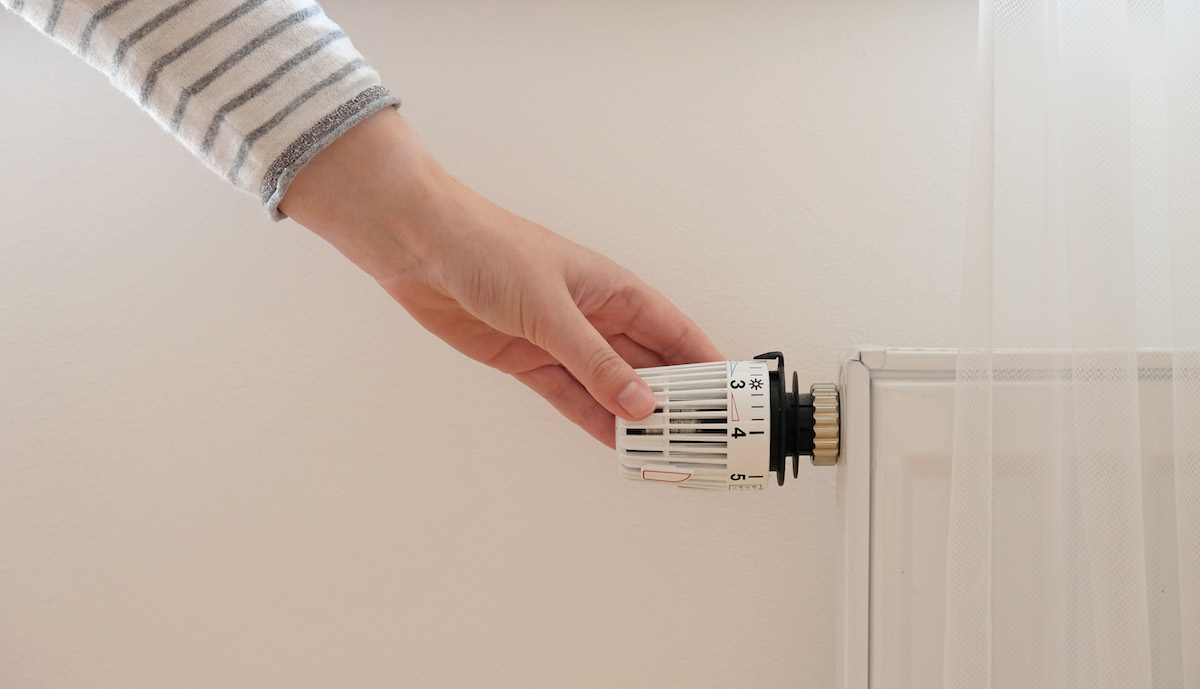At Greensaver, one of our main goals is to help individuals lower their energy consumption and energy costs. We do this primarily by delivering energy conservation programs such as the Save On Energy Energy Affordability Program and the Enbridge Gas Home Winterproofing Program. However, we also strongly believe that there are simple, effective steps that individuals can take to conserve energy at home themselves.
What is Energy Conservation, and How Does it Differ From Energy Efficiency?
Table of contents [Show]
While being quite similar, the terms energy efficiency and energy conservation have distinct definitions.
The definition of energy efficiency is “using technology that requires less energy to perform the same function.” For example, replacing an inefficient incandescent bulb with an LED bulb is energy efficiency.
In contrast, the definition of energy conservation is “any behaviour that results in the use of less energy.” Examples of energy conservation include turning off lights when leaving a room.
How Do I Conserve Energy?
Conserve Energy by Turning Off the Lights
The first and most obvious tip to conserve energy and save money is to turn off lights when you are not in a room. However, all lightbulbs have an operating lifespan, which degrades with every switch on and off. Therefore, depending on the type of bulbs you have, switching them off may be slightly different.
Incandescent lightbulbs are the least efficient lighting; 90% of the energy they produce is emitted as heat. Therefore, turn them off every time they are not in use.
Similarly, halogens waste a great deal of energy as heat, although not as much as incandescents. Remember also to turn them off every time they are not in use.
CFL lightbulbs, however, are a different story. All lightbulbs have a rated operating life, which reduces every time you switch it on and off. However, switching a CFL lightbulb off and on causes the operating life to degrade much more than other bulbs. Therefore, if you will be out of a room for 15 minutes or less, it is best to leave a CFL on.
Finally, LED lightbulbs are highly efficient, and their rated operating life is unaffected by being switched on and off. Therefore, remember to turn them off immediately when you leave a room.
Clean or Replace HVAC Filters
Dirty filters cause Heating, Ventilation, and Air Conditioning (HVAC) systems to run inefficiently, wasting energy. Eventually, the HVAC system will overheat and break down. In air conditioners, cleaning or replacing a dirty, clogged filter can lower energy consumption by 5-15%.
Whether you clean or replace your HVAC filters depends on the type of filters you have. You should throw away disposable filters as soon as they become clogged, while permanent filters can be cleaned and re-used.
Maintain Your Fireplace to Conserve Energy at Home

If you have a wood-burning fireplace in your home, there are steps you can take to conserve energy.
Firstly, keep the damper – the vent that controls airflow – closed when the fire is not burning. Leaving the vent open will let warm air escape through the chimney. Also, inspect your damper to ensure it closes properly. If it does not, it’s time to replace it.
Secondly, remember to sweep out the ashes from your firebox regularly. As little as one-tenth of an inch of soot can reduce the heat output of a fireplace by 50%, decreasing its efficiency.
Conserve While Doing Laundry
There are several ways that you can conserve energy while doing laundry. Firstly, since 90% of the energy used by washing machines goes into heating the water, you can save significant amounts of energy by washing with cold water. Doing so is just as effective as hot water for most loads.
Secondly, try to wash with full loads as much as possible, since the machine will use the same amount of energy no matter the load.
Finally, avoid using a dryer by drying clothes naturally outside or inside on a drying rack.
Conserve Energy at Home by Maintaining the Optimum Home Temperature

An easy way to conserve energy is to keep your home at the correct temperature. Try to avoid turning the thermostat up too high in winter and too low in summer, as this will waste energy. In winter, the optimum home temperature is 20°C, while in summer, it is 26°C.
Also, turning your thermostat back by 7°-10°F from its standard-setting while you are sleeping can save you up to 10% a year on heating bills.
Conserve Water
The average Canadian uses 329 litres of water a day. Reducing this amount, even slightly, is a simple way to conserve energy,
One way to do this is to take shorter showers. By lowering your daily shower time by just one minute, you could save conserve enough water to save $30 annually.
Similarly, turning off the faucet when shaving, washing hands, and brushing teeth can reduce hot water usage by 5%.
Conserve Energy in the Kitchen

There are numerous ways to conserve energy in your kitchen. In summer, try to prepare non-cook meals like salads and sandwiches. Avoiding using your oven and stoves as much as possible will reduce the heat produced and put less pressure on your air conditioner to maintain a cold temperature.
Always cook using the correct sized burner so as not to waste heat unnecessarily. Also, when possible, use a microwave instead of an oven. An oven takes one hour to do the same job that a microwave can do in 15 minutes.
Finally, conserve energy by maintaining your fridge between 2°C and 3°C and your freezer at -18°C. At these temperatures, both will function correctly without wasting energy.
Unplug Unused Electronics
Electronic devices continue to draw power from the socket even when they are switched off. This phenomenon is called phantom power and can account for up to 10% of a home’s energy use. The average Canadian home has 25 electronic devices pulling phantom power at one time, which costs around $150 a year.
Therefore, unplugging appliances that are not in use is a quick and easy way to conserve energy.
Conclusion: Various Ways to Conserve Energy at Home
Reducing your energy consumption and energy bills does not have to cost a lot of money or take a lot of time. There are simple, quick, steps you can take straight away to conserve energy and save money at home.
For new content, be sure to check out our insights page regularly. Also, follow us on Facebook, LinkedIn, and Twitter, and sign up for our newsletter.




